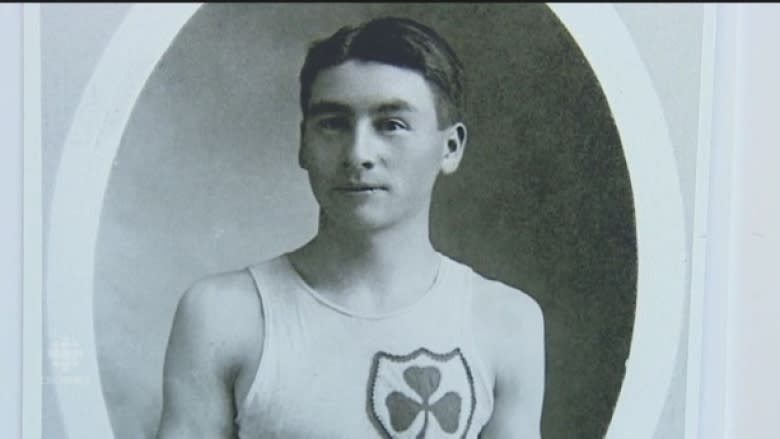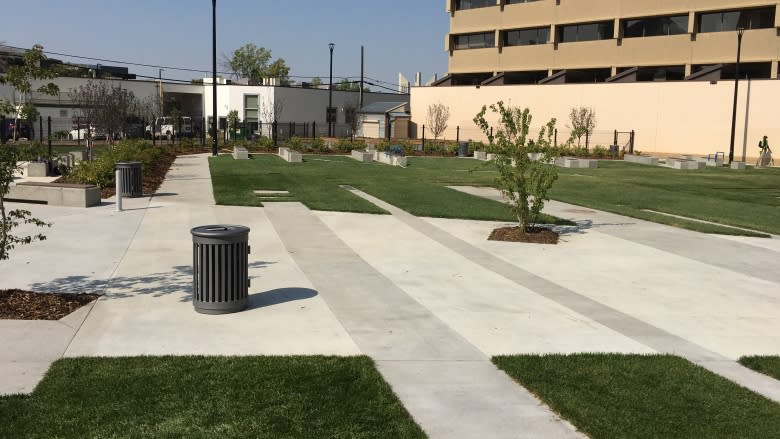Canada's first Indigenous police officer remembered in Passchendaele centennial
While Edmontonian Alex Decoteau was in England waiting to be deployed in the First World War, he signed up for a race.
Decoteau, who ran for Canada in the 1912 Olympics, ended up winning his race earning himself a trophy. But when King George V, who was to make the presentation, ran out of trophies, he gave Decoteau his gold pocket watch.
Decoteau was carrying that watch in his pocket when he was killed by a sniper in the Second Battle of Passchendaele 100 years ago. As Decoteau lay on the field of battle, the watch went missing.
"The sniper, or someone who discovered his body … went through his pockets and found the gold pocket watch and took it," Edmonton city archivist Kathryn Ivany told CBC Radio's Edmonton AM.
But in the same battle, the German soldier who took the watch was killed — and the timepiece was recovered.
"His name was on it, and it was returned to his family eventually," Ivany said.
Gifted runner
Decoteau was born in 1887 on Red Pheasant Cree Nation in Saskatchewan. He attended the reserve school and a residential school.
"He probably had a fairly troubled childhood in terms of being separated from his family," Ivany said. "And going to a school that already had, by 1886, several complaints against it."
After his sister Emily moved to Edmonton to be with her husband, respected blacksmith and politician David Latta, Decoteau followed.
Ivany said that while oppression and racism was rampant at the time, Decoteau may have tapped his brother-in-law's connections to help him get a job with the Edmonton police.
"At the turn of the century, there was probably more opportunities for Métis and Indigenous people who had assimilated into our culture," she said. "They formed a fairly significant portion of our population."
Decoteau became the Canada's first Indigenous police officer in 1909.
But his career choice would not be the only reason he made history.
"I think they discovered fairly quickly that he could run, which is important when you're apprehending criminals," Ivany said.
In June 1909, Decoteau won two five-mile races in less than a week. The next year, he won a 10-mile race, crossing the finish line eight minutes ahead of his closest challenger.
It earned him a spot on Canada's 1912 Olympic running team. He placed second in the five-kilometre race, and placed sixth in the 56-kilometre race despite having leg cramps.
Buried in Flanders Fields
Decoteau is buried in Flanders Fields in Belgium. In a special ceremony in 1985, Decoteau's family returned his spirit to Edmonton.
In recognition of Decoteau, the city named a park after him in downtown Edmonton, which recently opened to the public.
Ivany is working on the text for a plaque to be unveiled in the park next spring.
A street in the Griesbach community is named after him as will be a future residential area in southeast Edmonton.
Listen to Edmonton AM with host Mark Connolly, weekday mornings at CBC Radio One, 93.9 FM in Edmonton. Follow the morning crew on Twitter @EDMAMCBC.




